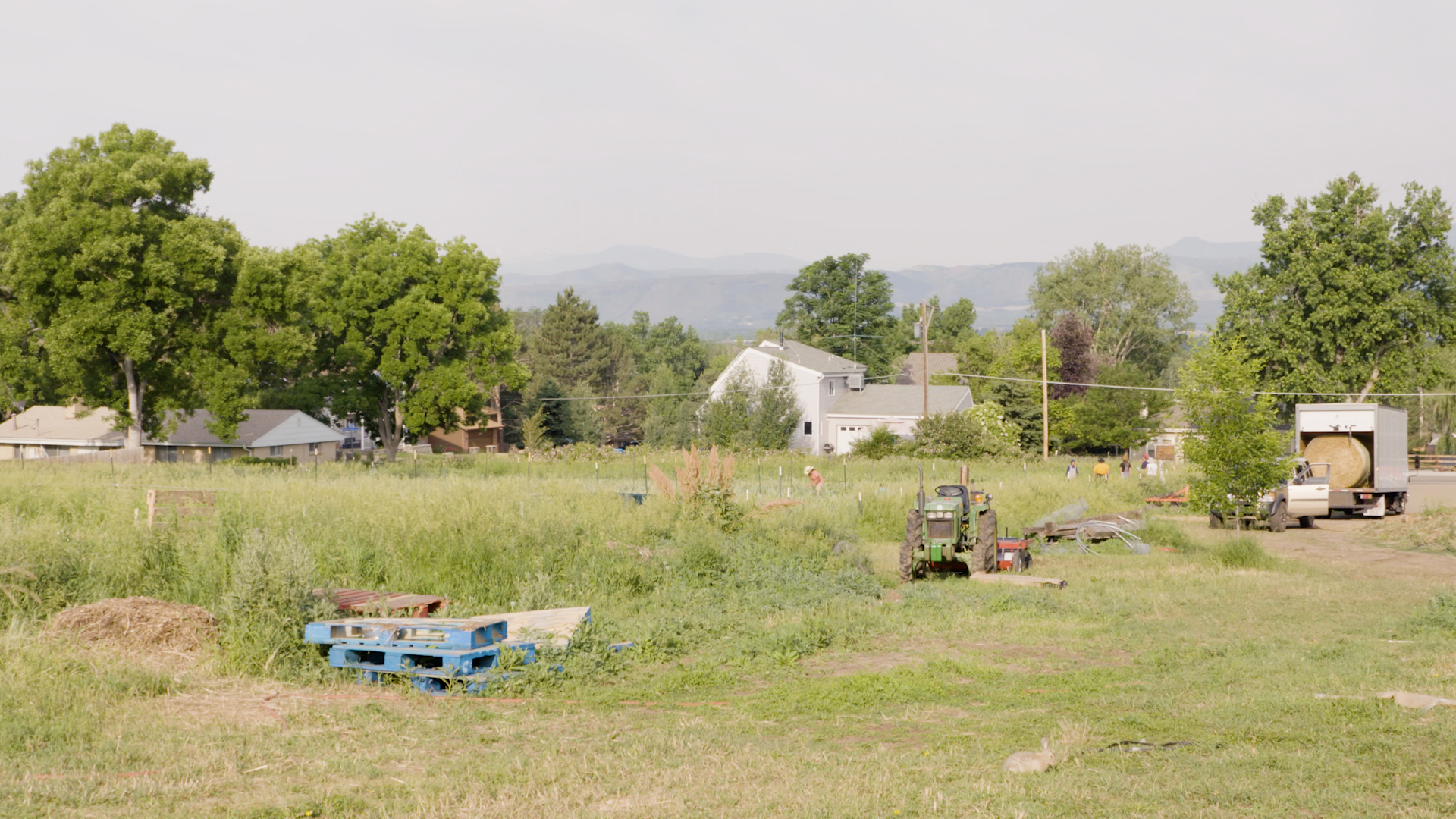Frontline Farming: Stories of liberation

DENVER — “We had to start our own kind of organization to tell our own story,” said Fatuma Emmad.
Emmad is the co-founder and Executive Director of Frontline Farming, a farmer advocacy and food justice organization on the Front Range.
By supporting women and people of color, the organization aims to create greater equity in the region’s food system. On top of three different farm sites, which produce high density and high nutrition foods for the community, the organization hosts education opportunities and pushes policy initiatives.
Mornings at the organization’s Majestic Farms are just as plentiful as its mission—the drone of bees and soft conversations over tomatillo planting fill the air. JaSon Auguste, Director of Farming at Sister Gardens, unloaded bales of hay for composting and data activist Kasey Neiss weighed green beans on a folding table. New apprentices roamed verdant rows with notebooks.
Emmad explained that “education is a path of liberation, particularly for people towards land and for our Black and Brown and Indigenous people who really have been kind of moved off of land both in a farming and urban senses.”
Frontline Farming pursues this education through various forms, particularly through something called foodways.
“One of the ways that we practice liberation is by telling the stories of the practices and foods that informed us and actually create the American tapestry in terms of foodways. So, it's not only about food but the cultures, and the ways that we prepare those foods, the stories behind them, the ways that people took to cultivating those things and the reasons why.”
At its Sister Gardens Farm, Frontline Farming cultivates three foodways: Bio-Regional, African, and Arab.
The Bio-Regional foodway focuses on the Four Corners area and growing crops from its Indigenous communities. Frontline Farming is currently testing a type of blue corn for the San Luis Valley.
The African foodway is important, said Emmad, because “it allows us to tell this story and have pride for ourselves as Black people. That isn't only a story about land that was about our exploitation, but also the stories of what we created.”
Emmad’s family is from Yemen and although she was born in Denver, she grew up in Ethiopia. The Arab foodway—the program’s newest—is very important to her.
She explained: “The world is in serious turmoil and war at this point, and we're dealing with refugees and immigrants. There's so many seeds coming from those places.”
Sharing these seeds, food, and culture is an opportunity to experience the story of what is happening in those places.

In addition to a number of educational programs, Frontline Farming directly advocates for agricultural workers. “And it's been something that is not welcomed in a lot of spaces,” said Emmad.
According to Emmad, many responses to issues are simply deflected. “I was often told that, ‘Well, that's not an agriculture issue, that's a labor issue, that's a federal issue because it has so much to do with immigration.’ So, it's been easy for the agricultural world to completely cut off that whole segment of stakeholder group.”
But that stakeholder group makes up a large part of the agriculture work force. Of about 50,000 agriculture workers in the state, roughly 60 percent are Black or Brown, Emmad pointed out.
“We see mostly people coming from particular parts of Mexico,” said Emmad, “We got our sheepherders in the north who come from lineages and places in Peru where they've done this for a long time…We have people from Guatemala, specifically Mayan communities.”
When the pandemic hit, agriculture workers were some of the most affected. “No one's giving PPE to these communities. No one's actively engaging with them,” Emmad said. She recalled being horrified, because during these life and death situations for agriculture workers, she kept hearing phrases like “essential but illegal” in the news.
Emmad thinks COVID-19 also created a political movement. Frontline Farming formed Project Protect Food Systems with a number of other organizations and started to think big.
Through a collective effort, Senate Bill 087 was introduced in February of 2021. Also known as the Farmworker Bill of Rights, the legislation boasted a number of protections for workers such as finally including agricultural labor in minimum wage laws and requiring employers to provide extra protections during a public health emergency. The bill was signed into law on June 25, 2021.
Emmad personally received hateful comments due to the bill and their advocacy around it.
“People want to erase us from the story,” she said.
Emmad continued: “Talking about the issues that we face as Black and Brown people is so politicized by people. Talking about basic human rights, basic history has become such a political and uncomfortable thing for people. That's not the reality we live in. We're living in those realities every day.”
Emmad and Frontline Farming are continuing the education, advocacy, and farming work. Next, they hope they can secure about 30 acres through their land reparations campaign and build a home.
“It's about actively being able to stand there and tell people they can't speak for us,” she said. “And we're here to tell our own stories.”